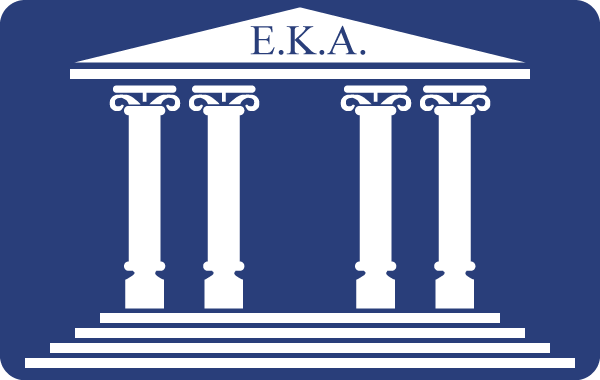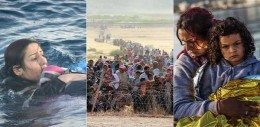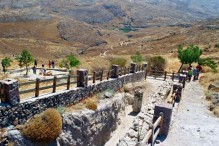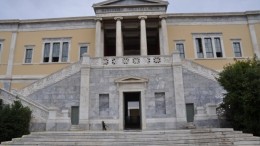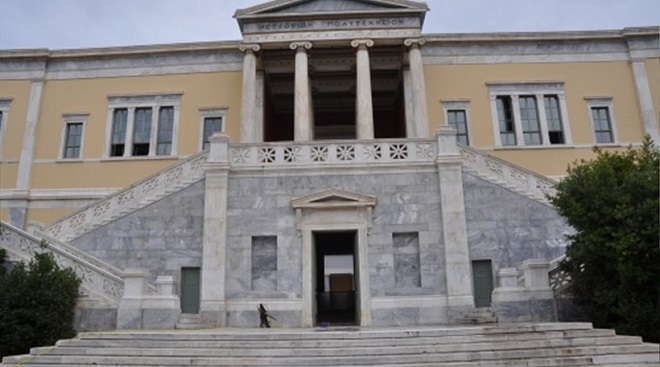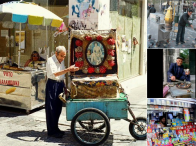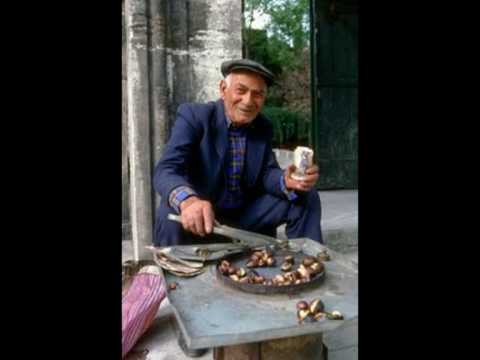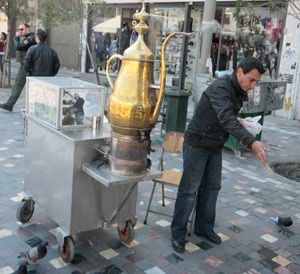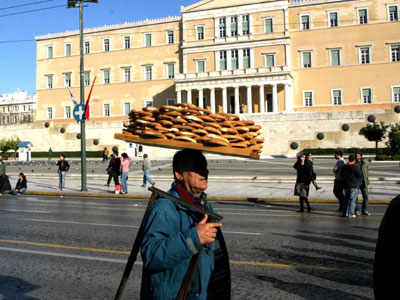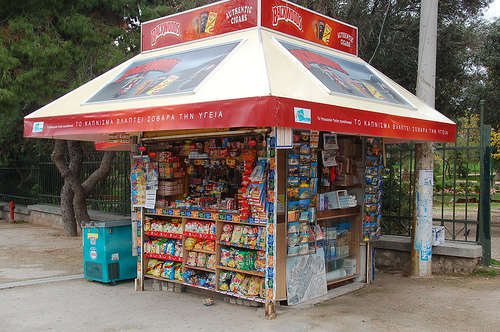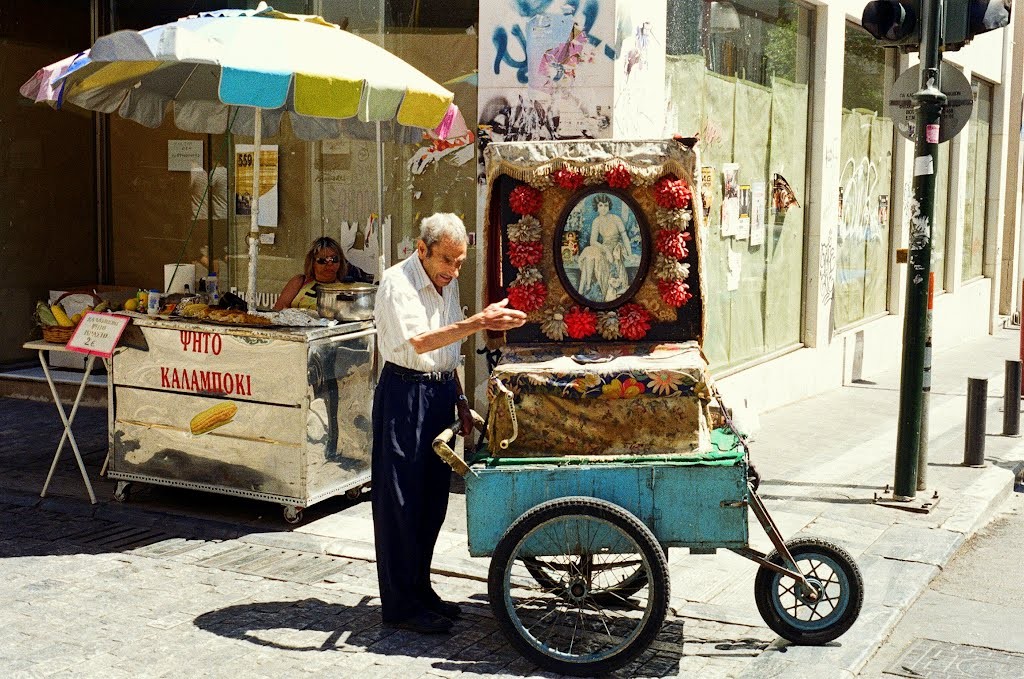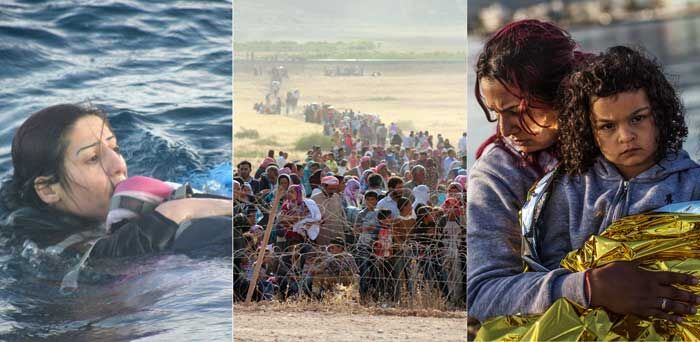 The accelerated war in and around Syria has displaced millions up million families, who take the treacherous journey across the high seas towards Europe, through Greece. The refugee crisis is at its worst than it has ever been in history. According to the UNHCR, the global refugee population was at an all-time high of 59.5 million at the end of 2014.
The accelerated war in and around Syria has displaced millions up million families, who take the treacherous journey across the high seas towards Europe, through Greece. The refugee crisis is at its worst than it has ever been in history. According to the UNHCR, the global refugee population was at an all-time high of 59.5 million at the end of 2014.
“Every morning he puts on his wet suit, gets in his van, takes out his binoculars and looks out for boats. Every arrival that comes, he waits for the boat to get closer to land, he walks bravely into the ocean, and pulls the boats to shore,” Layma Murtaza shares the story of Thanassis, a Greek volunteer from Athen who is helping rescue the many refugees that arrive daily on the shores of Greece.
Murtaza is an Afghan-American researcher who is among the volunteers on the Green island of Lesvos (Lesbos) – who provide support to refugees.
“We’ve seen Thanassis do this twice,” she says. He wakes up every morning at 4:30am to meet the boats carrying the refugees. “We saw him last night at Pikpa and thanked him for his efforts. He told us, “I never get tired of doing it. I never get tired. I’m a human being and they are too.”
Pikpa is among the many local organisations in Greece working with refugees. They have an open, self-organised refugee camp in Mytilene, Lesvos, that helps provide resources, food and shelter to the refugees. It is largely run by volunteers from local Greek Islands. “There are many Greek locals that helping through volunteering at the camps, greeting boats arriving on shore, and providing housing to volunteers in addition to various other ways,” Murtaza says.
Community effort
In a fitting lesson to larger nations, who are shutting their doors to the asylum seekers, the Greeks are welcoming them with open arms.
“Taxi drivers are kind and understand the situation and have lots of love and care for the refugees. Even shop owners in Militini have created make shift signs in handwriting in the languages of Arabic and Farsi to guide the refugees.I think it’s a great relief for someone to know that they are welcome in the shop with that sign,” Murtaza adds.
From 31 December 2015 to 4 January 2016, the Greek Coast Guards rescued 596 refugees in 13 incidents that occurred in the sea regions of Lesvos, Chios, Agathonissi, Kos and Megisti, reports Greek Reporter, a local news website.
This despite the debt crisis this little European nation faced in mid-2015, that forced banks to shut shops and government had to impose capital controls. Greece’s financial problems are far from over. Unemployment remains rampant and fear of bankruptcy looms over their economy.
But, their own troubles have done little to deter their spirit of community and goodwill as they pour out in hundreds to offer assistance to the incoming refugees. “From what I understand through speaking to various locals, the reason the Greek islanders have sympathy is because many of their parents and grandparents were refugees and asylum seekers from past wars in history. It hits close to home and they try to help in any way that they can,” reasons Murtaza.
Efforts hailed internationally
The humanitarian work has not gone unnoticed, though. At least three online petitions have made an appeal to award the next Nobel Peace Prize to the citizens of the Greek Islands. One of these, specifically mentions Lesvos, saying, “It is always those who have little that give, those who have no means that help, those who look horror in the eye that hope. It is the people of Lesbos (sic) who have provided consistent care and tenderness in welcoming the refugees.”
This informal nomination to one of the most prestigious awards has been backed by over 150,000 people in the two months that they’ve been online.
Whether the Norwegian Nobel committee obliges to this growing public remains to be seen. In the meanwhile though, the people of Greece certainly have won the hearts of the many refugees escaping was and turmoil.
As Murtaza puts it, “It’s quite beautiful that despite the Greek economic crisis, people give and continue to give. I have learned that humanity lives on Lesvos.”
(www.catchnews.com, by Ruchi Kumar)
